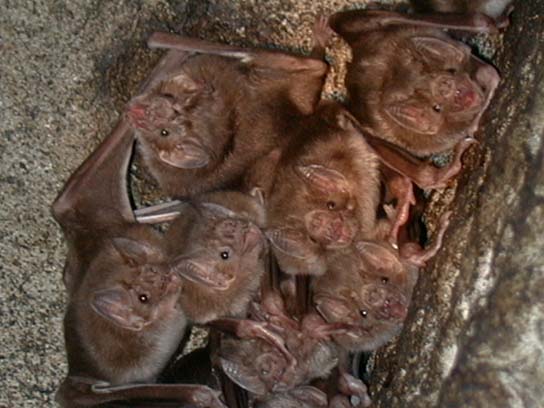 |
The EVOLUTION of MORALITY |
FRAME 22 |
 |
|
 |
> MORAL SYSTEMS (SOCIALTY AND COMMUNICATION)
Organisms may cooperate selectively with reciprocators.
 Organisms may guard against loss to cheaters by limiting their interactions. Consider again the case of vampire bats. Their observed system of blood exchange seems stable, undisrupted by potential free-riders. Why? Here, the bats tend to roost in the same colony, a very simple social organization which forms a context for sustainable reciprocity. The bats do not share blood unconditionally. They are more likely to provide food for a bat that has fed them on a previous occasion or that is a frequent roostmate. The bats can recognize distinct individuals and remember past events. They learn to identify cheaters. A bat that does not repay previous "favors" does not get endless handouts. Bats that cheat ultimately do not benefit. Defection is thereby limited (Wilkinson 1984, 1988, 1990). Selective interaction leads to network reciprocity, a social cluster of cooperators insulated against invasion by selfish individuals (Nowak 2006).
Organisms may guard against loss to cheaters by limiting their interactions. Consider again the case of vampire bats. Their observed system of blood exchange seems stable, undisrupted by potential free-riders. Why? Here, the bats tend to roost in the same colony, a very simple social organization which forms a context for sustainable reciprocity. The bats do not share blood unconditionally. They are more likely to provide food for a bat that has fed them on a previous occasion or that is a frequent roostmate. The bats can recognize distinct individuals and remember past events. They learn to identify cheaters. A bat that does not repay previous "favors" does not get endless handouts. Bats that cheat ultimately do not benefit. Defection is thereby limited (Wilkinson 1984, 1988, 1990). Selective interaction leads to network reciprocity, a social cluster of cooperators insulated against invasion by selfish individuals (Nowak 2006).
|

 |
|
|